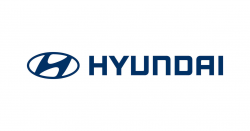— A Hyundai oil consumption lawsuit alleges numerous models are equipped with defective Nu, Gamma, Theta, Lambda and Kappa engines.
Owners say a Hyundai oil consumption recall should have been ordered because the engines allegedly use excessive amounts of oil, stall and eventually fail.
According to the Hyundai and Kia class action lawsuit, these models cause owners and lessees to expend huge sums of money to constantly purchase oil.
- 2012-2020 Hyundai Elantra
- 2009-2018 Hyundai Genesis Coupe
- 2019-2021 Hyundai Kona
- 2020-2021 Hyundai Palisade
- 2010-2012 and 2015-2021 Hyundai Santa Fe
- 2009-2010 and 2015-2021 Hyundai Sonata
- 2011–2021 Hyundai Sonata Hybrid
- 2010-2013 and 2015-2021 Hyundai Tucson
- 2011-2021 Hyundai Veloster
- 2020-2021 Hyundai Venue
- 2010-2021 Kia Forte
- 2017-2020 Kia Niro
- 2011-2020 Kia Optima and Optima Hybrid
- 2012-2021 Kia Rio
- 2011-2020 Kia Sorento
- 2012-2021 Kia Soul
- 2011-2020 Kia Sportage
- 2018-2021 Kia Stinger
- 2022 Kia K5
The Hyundai oil consumption lawsuit alleges drivers must constantly check the oil levels more than normal, and oil must allegedly be added to the engines more frequently than even the owner's manuals recommend.
The plaintiffs also allege adding too much oil isn't the answer because by adding oil above the maximum fill line the crankshaft will be partially or fully submerged. The crankshaft will foam the oil which reduces engine lubrication.
The Hyundai class action further says too much oil will strain and damage the gaskets and seals protecting the engine which leads to oil leaks.
Oil consumption is allegedly not the only problem because the Hyundai lawsuit claims oil migrates to places where it shouldn't be, and oil residue allegedly damages the combustion and exhaust systems and keep them from operating properly.
This allegedly causes "abnormal wear of engine parts, oversaturation of carbon, and deposits of oil sludge, ultimately requiring a costly engine rebuild or replacement."
According to the Hyundai oil consumption lawsuit, Hyundai should honor warranty claims even when the warranties have expired, and even when the vehicles are still under their warranties the automaker denies coverage if owners cannot provide maintenance records.
Hyundai and Kia dealers allegedly don't warn customers about oil consumption issues even when the symptoms match, then Hyundai and Kia customers must put their vehicles through oil consumption tests. Those tests require driving for thousands of miles so dealers can determine if excessive amounts of oil is consumed.
The Hyundai oil consumption lawsuit was filed by these plaintiffs:
- Davy Cho / California / 2022 Hyundai Santa Fe
- Bryan Rothmaler / Illinois / 2017 Hyundai Tucson Sport
- Beth Makie / Massachusetts / 2016 Kia Sorento
- Anna Chmura / Wisconsin / 2018 Hyundai Santa Fe Sport
- Anthony Banderas / Nevada / 2020 Hyundai Kona
- Michelle Smith / Florida / 2016 Hyundai Sonata
- Catherine Little / Texas / 2017 Hyundai Sonata
- Luticia and Thomas Thompson / Kentucky / 2016 Kia Sorento
Those owners claim Hyundai and Kia not only cannot adequately repair the oil consumption problems, but the automakers allegedly don't offer to reimburse customers for out-of-pocket expenses related to oil consumption problems.
And the class action also says customers must suffer through long wait times for replacement parts, "and in most cases do not receive required engine replacements."
The Hyundai oil consumption lawsuit was filed in the U.S. District Court for the Central District of California: Cho, et al., v. Hyundai Motor Company, LTD., et al.
The plaintiffs are represented by Nye, Stirling, Hale & Miller LLP, Sauder Schelkopf LLC, and Walsh, PLLC.

